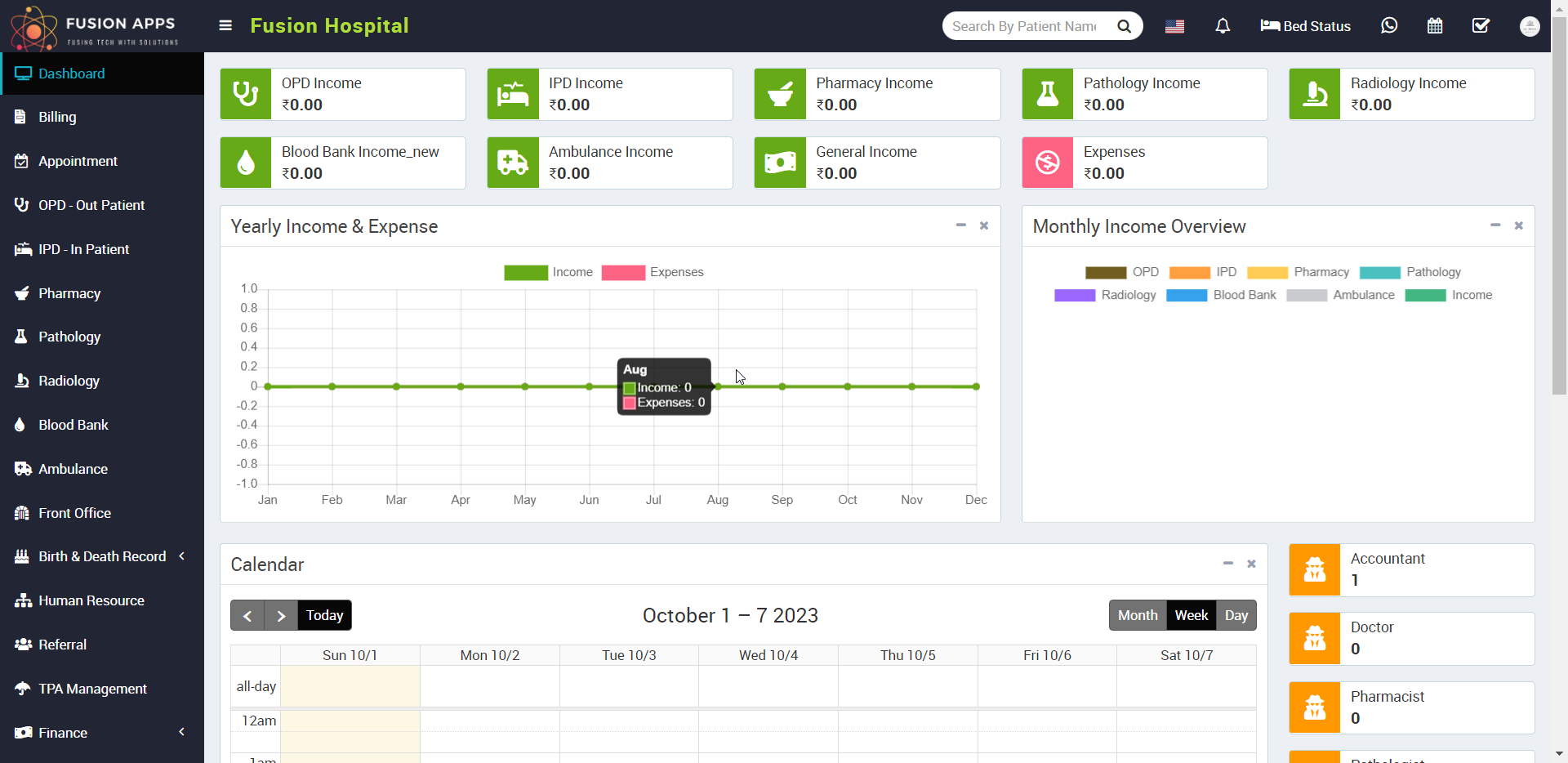Hospital Management System (HMS)
Hospital Management System (HMS) refers to a computer-based information system that streamlines the management of various administrative and clinical processes in a hospital or healthcare organization. It is a comprehensive platform that digitizes and automates routine tasks such as patient registration, appointment scheduling, billing, and inventory management, among others.
The primary objective of an HMS is to improve the overall efficiency and effectiveness of healthcare delivery by providing healthcare providers with a centralized platform to manage all aspects of their operations.
Some of the key benefits of HMS include:
- Improved Patient Care: An HMS enables healthcare providers to access complete and accurate patient records, including medical histories, test results, and medication details. This facilitates better diagnosis, treatment, and follow-up care, resulting in improved patient outcomes.
- Increased Operational Efficiency: HMS automates many of the routine administrative and clinical tasks, which saves time and reduces the risk of errors. It also enables real-time monitoring of key metrics such as patient wait times, staff productivity, and resource utilization, allowing administrators to make informed decisions to optimize their operations.
- Better Financial Management: An HMS streamlines the billing and payment processes, reduces revenue leakages, and provides accurate financial reports, enabling healthcare organizations to manage their finances more effectively.
- Enhanced Data Security: An HMS ensures that patient data is stored securely and can only be accessed by authorized personnel. It also facilitates compliance with data protection and privacy regulations.
There are several modules in an HMS, each serving a specific purpose. Some of the common modules include:
- Patient Management: This module handles patient registration, appointment scheduling, and the creation and maintenance of electronic health records.
- Billing and Insurance: This module facilitates billing and payment processes and ensures that patients are correctly charged and reimbursed for healthcare services.
- Pharmacy Management: This module manages the dispensing of medications, including tracking inventory levels, generating purchase orders, and managing drug interactions.
- Laboratory Information System: This module manages laboratory operations, including test orders, results, and quality control.
- Radiology Information System: This module handles radiology operations, including the scheduling and tracking of radiology exams, and the storage and retrieval of images and reports.
Overall, an HMS is a powerful tool that can help healthcare organizations improve patient outcomes, increase operational efficiency, and manage their finances more effectively.
